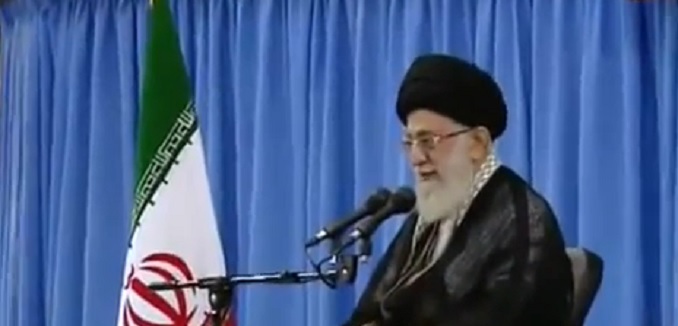The World Bank’s recently released Global Economic Prospects report shows that Iran’s economy is expected to steadily grow in the coming years, the latest analysis reinforcing what Mark Dubowitz, the executive director of the Foundation for Defense of Democracies, described Monday as “broad agreement that Iran’s economy is showing signs of recovery and stabilization.”
There is now broad agreement that Iran’s economy is showing signs of recovery and stabilization after years of sanctions. There is reasonable room to disagree over whether this was sparked in part by an overall global economic recovery, better fiscal and monetary policies on the part of Iran since Rouhani’s election, changing market psychology, the de-escalation of sanctions, growing interest by international companies in returning to Iran, and/or a perception that the Obama administration may no longer be committed to ratcheting up the economic pressure on Iran. Regardless, American leverage at the negotiating table is weakening as a result of these economic trends. This could greatly complicate final negotiations for a peaceful resolution to Iran’s nuclear program.
Analysts fear that U.S. leverage will continue to bleed as data is compiled on the implementation of the Joint Plan of Action (JPA), which as of Monday saw the West lifting sanctions on a range of sectors and irreversibly releasing restricted Iranian funds. The Los Angeles Times Monday conveyed statements by Ali Akbar Salehi, head of Iran’s nuclear agency, declaring on state television that “the iceberg of sanctions is melting while our centrifuges are also still working.” The Obama administration had claimed that the overall value of the relief would be modest – roughly $7 billion – and that the rest of the international sanctions regime would hold. Skeptics challenged both claims, calculating that the relief would be worth at least $20 billion and predicting that a feeding frenzy would take hold as sanctions were modestly eroded, with nations and companies scrambling to avoid getting left behind in the rush back into Iran’s markets. Such concerns were derided as “fanciful” by analysts linked to the administration. The Financial Times reported this weekend that Iranian economists are estimating the value of sanctions relief to be $15 billion. RFE/RL Monday assessed that “the easing of sanctions on Tehran that has just taken effect is sending Western companies rushing to seek new business opportunities in Iran” and that keeping some sanctions in place has been insufficient to prevent “huge business interest on both sides.”
A group of senior French executives, including from the energy and automotive sectors, is heading to Tehran early next month. They follow a delegation of British lawmakers who visited this month. At the same time, Iran’s Trade Promotion Organization says business delegations from Italy, Austria, Georgia, Kazakhstan, Turkey, and many other countries have already visited since late last year, when an interim nuclear deal between six world powers and Iran was announced.
[Photo: News World 2014 / YouTube]




